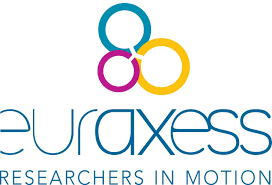The Human Resources Strategy for Researchers (HRS4R) is an initiative of the European Commission for the continuous improvement of working conditions and careers of researchers in research and higher education institutions.
Human Resources Strategy for Researchers (HRS4R).
The main goal of the HRS4R is to ensure a stimulating and favourable work environment for researchers, promoting equal opportunities, mobility, recognition and appreciation of research work. In order to achieve this, participating institutions should carry out a detailed analysis of their human resources policies and practices in relation to research, hence identifying areas of improvement and developing a specific action plan.
Institutions that implement the HRS4R are committed to adopting transparent and equitable practices regarding recruitment, assess and promotion of researchers, as well as to provide a work environment that fosters creativity, collaboration and professional development. Furthermore, the HRS4R aims to strengthen both the reputation and attraction of talent of European research institutions, thereby fostering excellence in research and innovation across all Europe.
This strategy is based on the principles of the Code of Conduct for the Recruitment of Researchers and the European Charter for Researchers.
European Charter for Researchers (ECR)

devoted to research development
The European Charter for Researchers is an initiative of the European Commission that aims to improve working and professional conditions of researchers across Europe. It was launched in 2005 as part of the Lisbon Strategy to make Europe the most competitive and dynamic knowledge-based economy in the world.
The European Charter for Researchers establishes a frame of principles and rights for researchers, as well as the organisations that recruit or fund them, with the goal of promoting mobility, equal opportunities and the development of a solid and sustainable research career.
Some of the key principles of the European Charter for Researchers include, in relation to researchers: research freedom, ethics and professional responsibility, accountability and dissemination of results. With regard to institutions that conduct or fund research, the principles that stand out the most are: non-discrimination in recruiting, keeping adequate working conditions and funding, as well as authorship and intellectual property rights recognition.
Furthermore, the European Charter for Researchers is paired with the Code of Conduct for the Recruitment of Researchers, which establishes ethical and professional standards for the recruitment of researchers.
Code of Conduct for the Recruitment of Researchers (CoC)
The Code of Conduct for the Recruitment of Researchers is a combination of ethical principles and rules for good practices developed together with the European Charter for Researchers. It was designed to guide institutions in the recruitment process of researchers, in both the academic and business context, with the goal of ensuring an open, transparent, merit-based recruitment process.
Some of the principles and standards established in the Code of Conduct include:
- Recruitment through open, efficient and transparent procedures
- Selection made by inclusive committees, which include members that differ in disciplines, sectors, years of experience, sex, origin, etc.
- Transparency in the selection process
- Judging merit based on a holistic approach, including research potential or creativity
The Code of Conduct for the Recruitment of Researchers, together with the European Charter for Researchers, aims to promote high standards in selection and recruitment of researchers across Europe, thereby encouraging a fair, equitable and propitious work environment for high-quality research.
The European Charter for Researchers (ECR) and the Code of Conduct for the Recruitment of Researchers (CoC) are closely related to the HRS4R initiative and its principles. The HRS4R is a tool that assists research institutions and employers in implementing the principles of the ECR and CoC in their human resources policies and practices.
The ECR and the CoC establish principles and ethical standards for recruiting and employing research staff. The HRS4R provides a structure and process for institutions to demonstrate their commitment to these principles, fostering a more favourable working environment for research excellence in Europe.


